Imagine yourself running an MLM business, on the lookout for that perfect piece of software that feels like it’s made just for you. You know this decision is a big deal—it’s about finding the right tool that helps keep everything from sales to payouts running smoothly. But when it comes to figuring out how much this software should cost, things can get a bit confusing. That’s exactly why you’re here, and we’re here to help make sense of it all.
Choosing the right software is more than just picking the one with the longest list of features or the flashiest interface. It’s about finding a system that fits what your business needs right now and grows with you. Today’s MLM software is pretty clever; it can do everything from customizing to match your unique business ways, to working in the cloud so you can get your data anytime, anywhere. These perks are great, but they also play a big part in why software prices can be all over the place.
As you dive into the tech side of things, you’ll see that the mlm software price you pay is linked to a bunch of different things. It’s not just about the cool features; it’s also about how the software can be shaped to fit your business, how well it plays with other systems you use, and the kind of tech it’s built on. And every choice you make—like starting with a basic setup and adding bits as you grow, or going all-in with a full setup from the start—has its own set of costs. It’s clear that picking your MLM software is as much about strategy as it is about the features.
This article is curated with the help of the Customer Success Team of Epixel MLM Software to guide you rightly through the world of MLM software pricing. In the next sections, we’ll open up about what makes up the price tag, highlight the important details, and help you find the best value for your money. We’ll cover the essentials, from the must-have MLM software features to the kind of support you can expect. Our goal is to give you the know-how to pick software that’s worth your investment, matches your budget, and helps your business thrive.
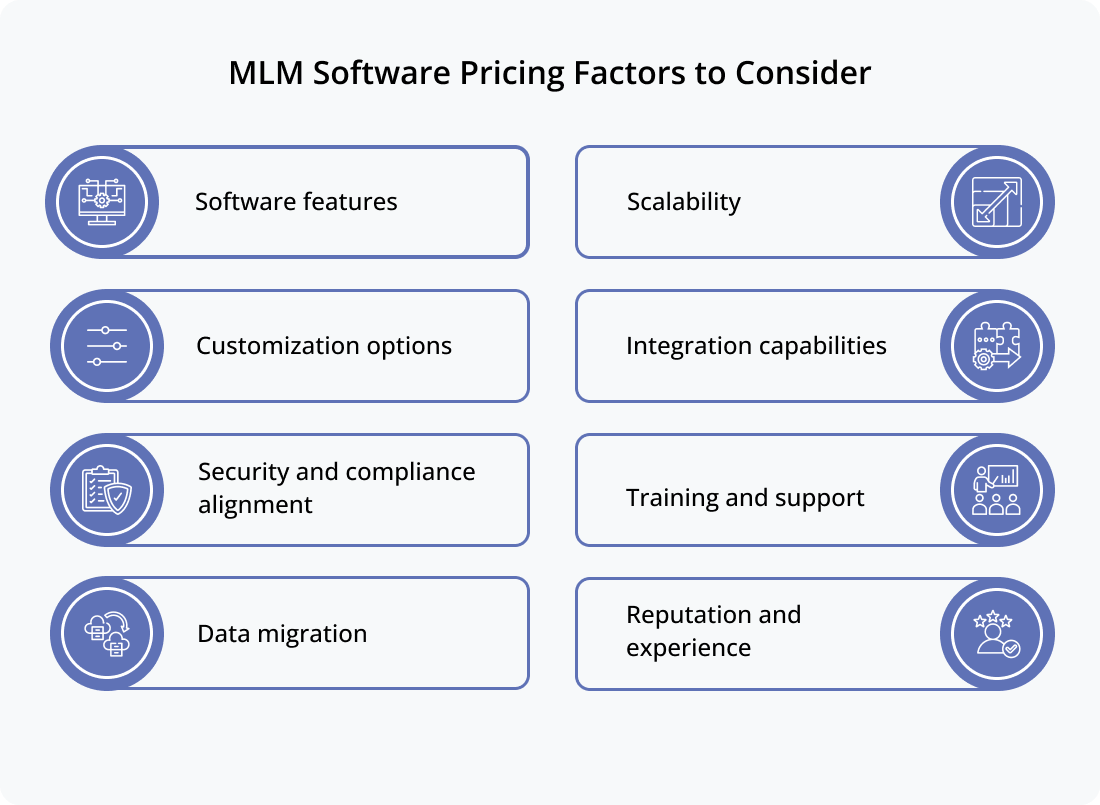
Software features
When it comes to MLM software, the array of features and their sophistication play a pivotal role in determining the mlm software price. It's a straightforward equation: more advanced features equate to higher costs. This is because each sophisticated feature—think ecommerce integration, blockchain-based smart contracts, support for multiple compensation plans and currencies—requires a significant investment in development, testing, and ongoing maintenance.
For instance, if your business thrives on online sales, having ecommerce integrated MLM system isn't just nice to have; it's essential. Similarly, if you're dealing with a global team and customers, supporting multiple currencies will make everyone's life easier. But these richer features, while elevating the functionality of your software, also add to its complexity and, by extension, the cost.
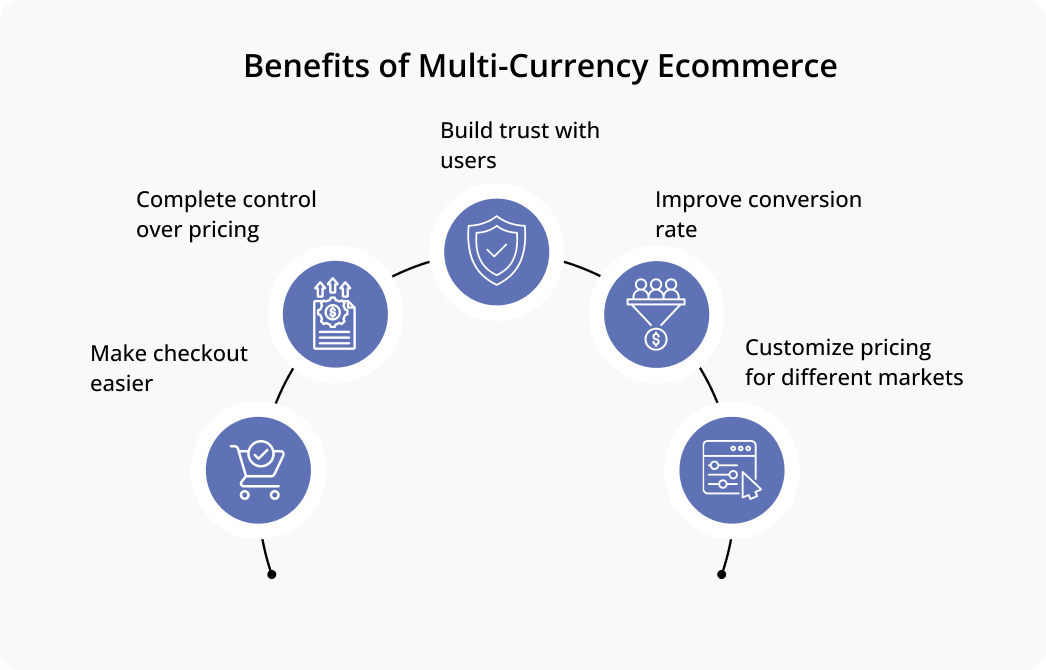
It's also about the specific needs your business has. Take third-party integrations, for example. If your operation hinges on external communication and robust sales channels, integrating with top-notch CRM or ecommerce platforms won't just be a feature; it'll be a cornerstone of your business strategy. And with such integrations come additional costs.
Then there's the aspect of customization, particularly design elements. A software interface that's easy on the eyes and a breeze to navigate isn't just about aesthetics—it's about enhancing usability and ensuring your team and network can use the software to its full potential. Custom designs and user interfaces are tailored to fit like a glove, but they also require more resources to create, thus impacting the final price tag.
So, the richness of features directly influences your MLM software's pricing. It's about weighing what's essential for your business's success against the investment you're willing to make. The goal is to strike a balance, securing a software solution that delivers the functionality you need without superfluous extras that inflate the price.
As we consider the importance of scalability in the next section, we'll examine how planning for your business's growth influences your choice of MLM software and its cost.
Scalability
Scalability is not just a tech term—it's the magic word for growth in the MLM world. It's about having software that grows with your business, handling more customers, users, more sales, and more data without a hitch. Imagine a building designed to add more floors as your company expands; that's what scalable MLM platform does for your business.
When your software is built to scale, like those using modern solutions such as Kubernetes, it means you can welcome more users and manage heavier workloads without missing a beat. This kind of agility is critical. It keeps your distributors productive, your transactions smooth, and your response to market changes swift. Plus, a scalable system isn't just about handling growth; it's about maintaining the quality of your products and services, keeping them in line with customer expectations and market shifts.

A basic MLM software setup with the essentials might start at a basic price, but as your needs grow, so does the figure. Need advanced CRM features? Ecommerce capabilities? Blockchain technology? These functionalities are like choosing a car with premium options—they make the ride smoother but also up the price, potentially well over your budget. The additional development and integration efforts to accommodate an expanding user base and more complex data management needs are major software pricing factors driving up the cost.
But here’s the deal: Investing in scalability means you're building a foundation that's made to last. You're not just paying for the software as it is today; you're investing in what it can become. It's about ensuring that as your company grows, your software isn’t just keeping up; it’s leading the charge, ready for the next challenge.
Customization options
Customization is the art of tailoring your MLM software to fit the unique contours of your business. It's a bit like commissioning a made-to-measure suit—every detail is crafted to your specifications, from the lapels down to the buttons. In the software world, this means developing and testing features that meet your specific needs, and naturally, this personal touch comes with a higher price tag.
The extent of customization is a significant driver of cost. It's not just about adding a logo or changing colors; it's the balance between creating a system that feels personal and one that's intuitive for users. And then there's the future to think about—building in features that not only serve you now but can evolve as your business does. This foresight is crucial, as it means the software can adapt without needing a complete overhaul down the line.
Advanced design elements and the ability to integrate seamlessly with existing systems—like your accounting software or email marketing tools—also add layers to the pricing puzzle. These integrations are like bridges, connecting islands of technology to create a cohesive infrastructure, and constructing them requires time and expertise.
It's true that experienced software providers might charge more upfront, but they often bring to the table a level of after-sales support and service that can be invaluable. This kind of partnership can provide long-term value that goes beyond the initial setup.
On the flip side, readymade MLM software solutions can be attractive, especially if you're looking to hit the ground running. They're user-friendly, can be rolled out quickly, and come with the promise of vendor support for updates. Yet, they can sometimes be a little too cookie-cutter, lacking the unique features that make your business stand out and risking obsolescence.
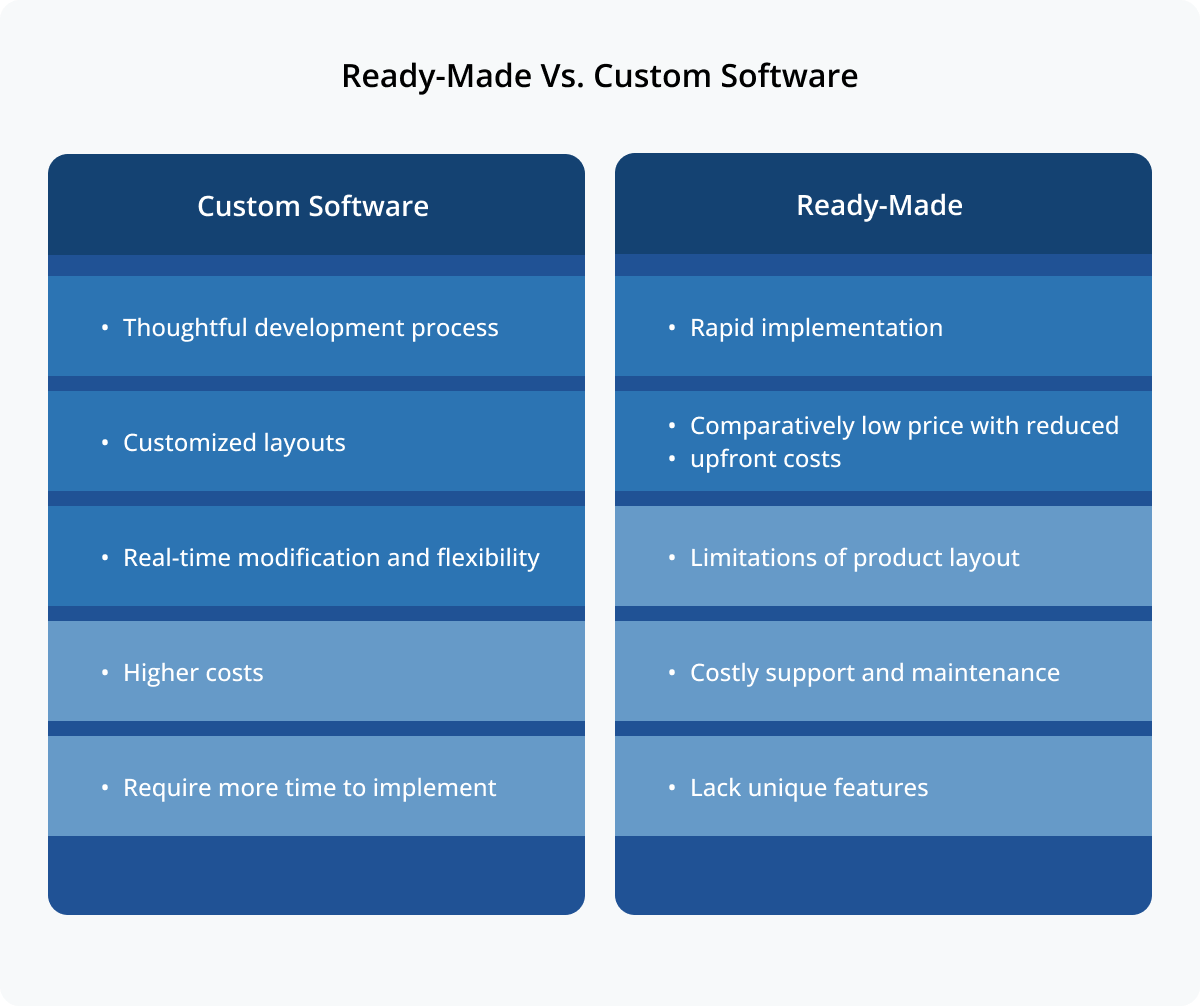
Custom software, with its tailored scalability and flexibility, offers a competitive edge. It's built around your business, accommodating your way of working and growing with you. But this bespoke approach requires a larger investment, not just in terms of money but also in user training and support. And yes, there are higher risks—delays, compatibility issues, and the occasional bump in the road are all part of the journey with custom solutions.
The decision between off-the-shelf and custom-built software isn't one to be taken lightly. It's about weighing your company's needs, your appetite for risk, and your vision for the future. Do you go for the ready-to-wear option that's quick and easy, or the bespoke suit that's crafted just for you? The answer lies in what's best for your business's growth and success.
In the following segment, we'll discuss how integration capabilities can further complicate or simplify this decision, impacting the overall investment in your MLM software.
Integration capabilities
Imagine all your business tools—your CRM, email platform, accounting software, and more—all talking to each other without any hiccups. This kind of unified data management is a game-changer. It not only boosts your team's productivity but also gives you the agility to outpace competitors by speeding up transactions and communications.
But, as with any technology, it's not all plug-and-play. Integrating systems means you've got to think about keeping your data safe and secure. There's also the cost factor. Getting everything to work together smoothly can require a significant initial investment, especially if you're customizing the integration. And let's not forget about the people using the systems—your team will need to be up to speed, which might mean extra training.
When you're considering how much to invest in MLM software with top-notch integration capabilities, it's a bit of a balancing act. On the one hand, custom integrations can seem appealing because you're using what you already have. But down the line, any changes or updates might need a complete do-over, and that can add up quickly.
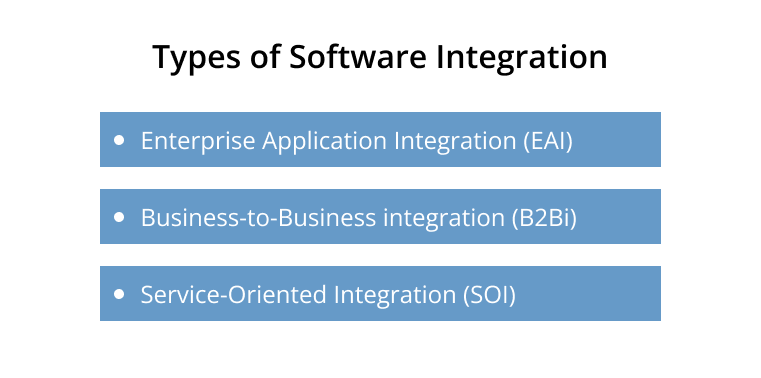
Then you have the traditional methods like Enterprise Application Integration (EAI) and Business-to-Business integration (B2Bi). These come with a higher price tag upfront—you're paying for licenses, servers, the whole nine yards. But, if your business doesn't change much, they could be more cost-effective in the long run.
Service-Oriented Integration (SOI) is the middle path. It's flexible, ready to adapt to changes without a complete overhaul, which means you could save on maintenance and updates. Because it's built on a framework of loosely coupled services, it's easier to tweak parts without having to dismantle the entire system.
Investing in a robustly integrated MLM system is investing in the future. Yes, there are costs and challenges, but the payoff is a system that grows with your business, keeps operations running smoothly, and ultimately, pays dividends in efficiency and agility.
Up next, we'll delve into the world of security and compliance—a non-negotiable in the MLM software space, and a factor that can significantly sway your software budget.Security and compliance alignment
In a world where data breaches are a headline staple, investing in robust security measures and ensuring data security in MLM business is not just a necessity; it's a declaration of your business's integrity.
Starting with the basics like SSL encryption ensures that the data exchanged over the internet is unreadable to anyone who shouldn't have access to it. Compliance with standards like PCI DSS means that if you're handling credit card information, you're doing it to the highest security standards. Other essentials include IP blocking to keep out unwanted visitors, DDoS protection to prevent disruptions in service, and rigorous database and password encryption to protect the core of your data's sanctity. Let's not forget about the safety net of regular data backups, ensuring that even in the face of a disaster, your business can bounce back.
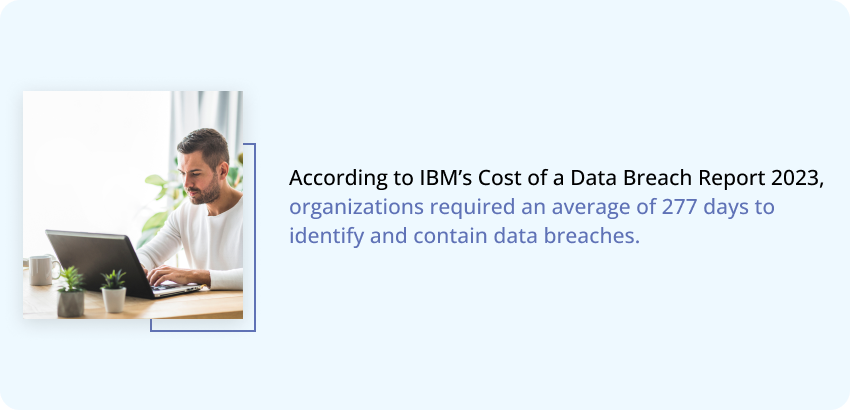
These aren't just boxes to tick off for peace of mind; they're pivotal in maintaining the software's—and, by extension, your business's—credibility. Failing to meet industry standards can lead to hefty fines and, worse, a tarnished reputation. Moreover, data breaches can have far-reaching consequences beyond financial loss, including eroding customer trust and loyalty.
The level of sophistication in your MLM software's security features will invariably influence its pricing. Implementing these complex systems and keeping them updated in the face of ever-evolving cyber threats requires a continuous investment of resources. It's a dynamic battlefield, with security experts constantly developing new defenses against the latest cyber-offensive tactics.
Investing in security and compliance features is a strategic move that pays off in the long run. While it may add to the initial and ongoing costs of your MLM software, it helps avert potential crises that could be far more damaging and expensive. A secure and compliant system is a testament to your commitment to protecting your stakeholders' interests, positioning your platform as a trustworthy and secure choice in the market.
In the next section, we'll examine how network size not only affects the technical capabilities required of MLM software but also the financial implications of accommodating an ever-growing user base.
Implement cost-efficient security features and impactful strategies to guard your organizational assets.
Explore How➔Training and support
When you choose MLM software, it's like getting a new team member on board. You want them to hit the ground running, right? That's where top-notch training and support come in. It's all about giving your distributors the tools and know-how to make the most of your products. Think of it as equipping them with a Swiss Army knife for the MLM world—it's got everything they need to succeed.
Now, creating these training modules and support materials—that's like putting together a playbook for your team. It takes time and effort, and yes, it does add to the cost. But think of it as an investment in your team's future wins. The better they understand the game, the better they play, and the higher your business scores.
After your software is up and running, you'll want to keep it that way—smooth and efficient. This is where the post-development support team comes into the picture. They're the pit crew for your racing car, always ready to jump in and tweak things to perfection. And while their expertise is invaluable, it does come at a price. But hey, what's a race won without a great team behind the scenes?
So, more in-depth training and round-the-clock support might bump up the price a bit, but they're worth their weight in gold. They're the sidekicks that help your main players—your distributors—shine. And when they shine, your business does too.
As we gear up to talk about data migration, remember—it's not just about moving data from point A to point B. It's about making sure your business history has a safe and accessible home in your new software. More on that in a bit.
Data Migration
Think of data migration as moving houses. It's not just about the stuff you're moving; it's about making sure everything fits perfectly in your new place. In the world of MLM software, it's the process of taking all the important data from your old system and transferring it to the new one. Sounds straightforward, right? Well, it's a bit more complex than packing up boxes.
Now, this isn't a simple copy-paste job. It's about moving large volumes of data while making sure nothing gets lost or jumbled up. You've got to think about whether your old data will play nice with the new system, and sometimes that means rewriting apps so they can live in the cloud without any hiccups. This process can be as complex as it sounds, and yes, it can be a bit pricey.
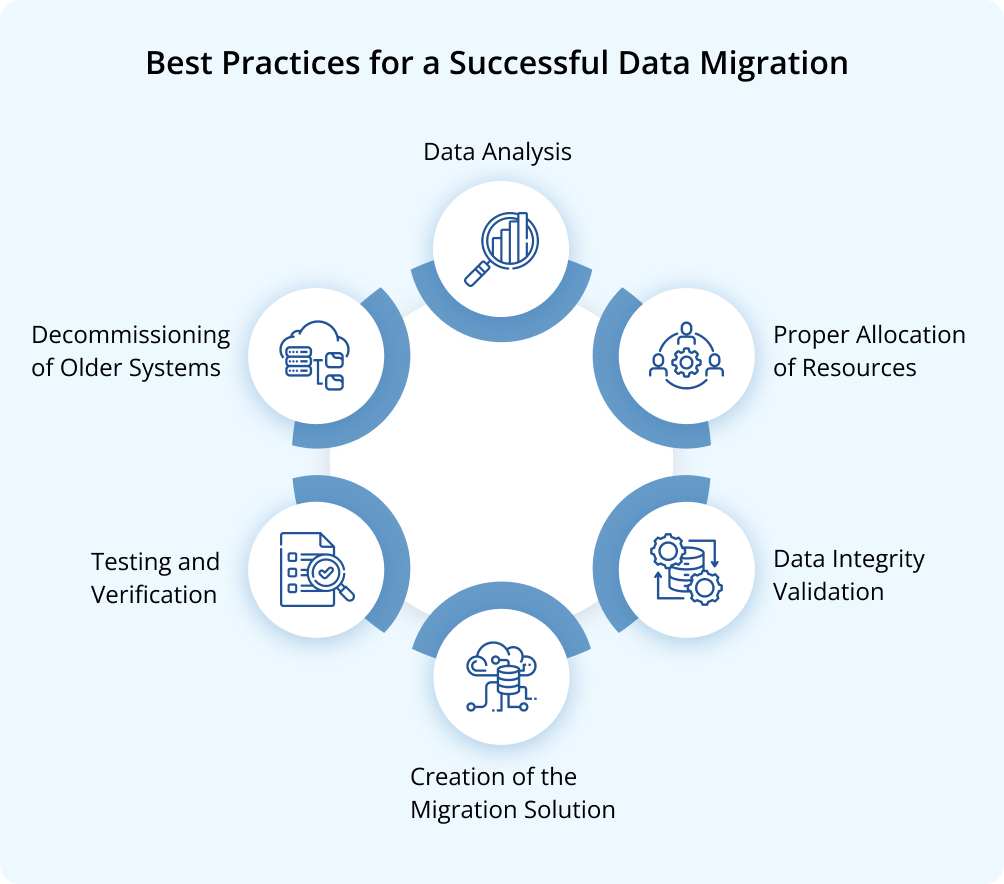
Picking the right cloud provider is a bit like choosing the right moving company. You want one that's reliable, gives you a good deal, and makes sure your stuff arrives safely. They've got to tick all the boxes—performance, pricing, and playing by the rules, especially when it comes to your data's security and privacy.
Some challenges you might run into include data gravity—that's the pull that keeps your data stuck where it is because it's so massive, or data silos, which are like little islands of information that don't talk to each other. Then there's making sure your data is secure throughout the move, and that it still meets all those strict rules and regulations.
Getting it right means ensuring every piece of data arrives in the right format, nothing's duplicated, and it all fits into your new software like a puzzle piece. It's a big task, and how you tackle each part—from prep to the actual move—can really affect your bottom line.
But when done correctly, data migration sets the stage for your new MLM software to work its magic. It ensures you're not just bringing over data; you're setting up for future success.
Next up, we'll look at how the reputation and experience of your software provider can make a world of difference, not just in your software's day-to-day operations but in how it can shape your business's future.
Reputation and Experience
When you're in the market for MLM software, the experience of your provider plays a big role, kind of like choosing a pilot with plenty of flight hours under their belt. Here's the rundown on how this experience can mean higher reliability and, yes, sometimes higher costs too.
Let's start with the complexity of MLM plans. Seasoned developers have navigated these waters before. They can handle the intricate structures of your MLM compensation plans, which is a big win for reliability. But it's like anything bespoke—the more complex the design, the more you invest because of the extra work involved.
Next up, we've got features and functionalities. Imagine genealogy tracking that can trace your network's connections with pinpoint accuracy or an e-wallet system that's slick and user-friendly. Experienced providers can build these with their eyes closed. But remember, crafting these advanced tools isn't child's play, and the development time can add to your bill.
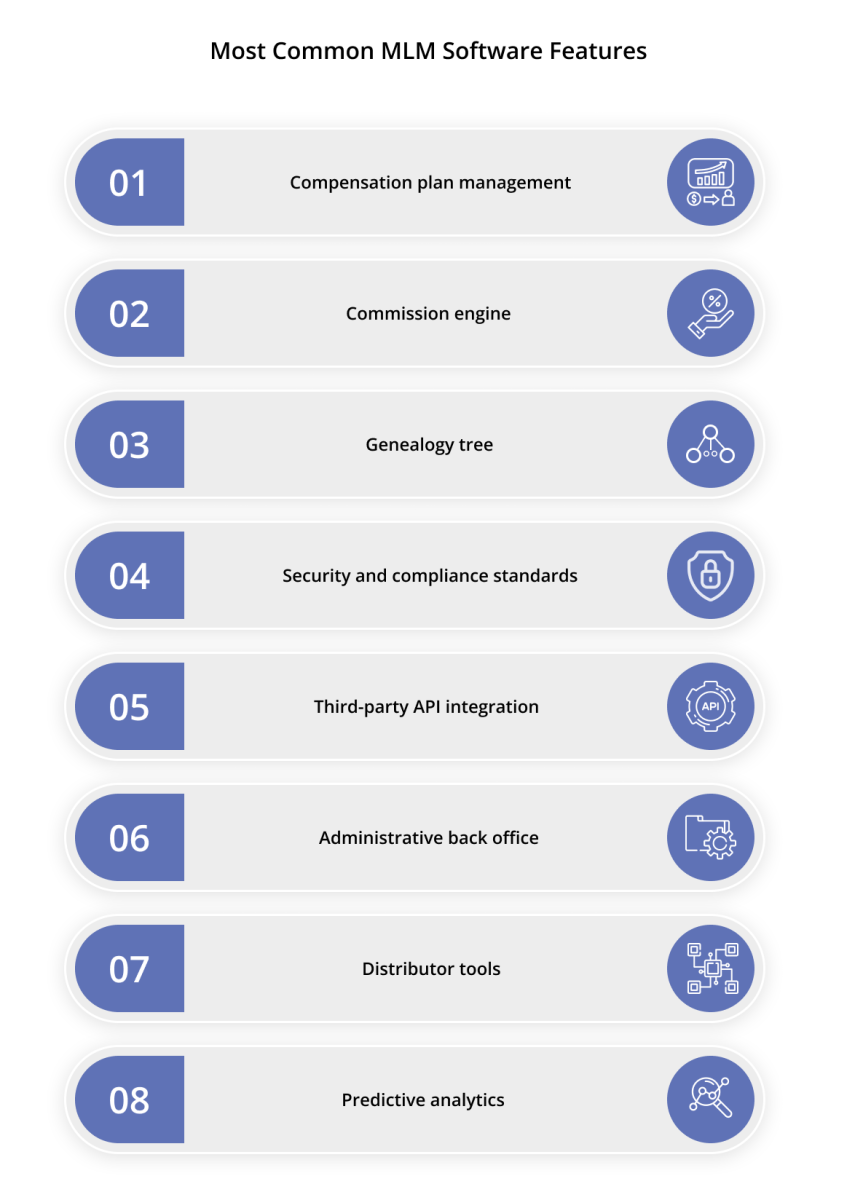
Lastly, let's talk about market experience. Providers who've been building and maintaining MLM software for years know the game inside out. They often charge more, but what you're getting is their wealth of knowledge, not to mention the value of rock-solid after-sales support and services. It's an upfront investment, sure, but the payoff is software that keeps ticking without hiccups, and that kind of reliability can be priceless in the long run.
In essence, a provider's experience in the MLM software arena can lead to a product that's like a trusty vehicle—it won't let you down when the going gets tough. They've got the expertise to deal with complexity, deliver the needed features, and ensure everything's running smoothly. But all this expertise, service, and reliability? They come at a premium, reflecting the value they bring to your business journey.
Find out from our customers how our solutions give MLM businesses an edge and exceed customer expectations
Conclusion
We've taken a good look at what shapes the cost of MLM software, and it's clear that the right choice isn't just about the present—it's about setting up for a bright future. From the power-packed features that streamline your daily operations to the custom options that fit your unique business model, every detail matters.
It has become evident that choosing the right software is an intricate balance of features, customization, and scalability against the backdrop of cost. Every element, from integration capabilities to the premium of a provider's reputation, has its role in the final decision.
A provider's market standing, and history of delivery aren't just badges of honor; they are indicators of the software's potential to grow with your business. The extra upfront cost for a provider known for their reliability and seasoned expertise is an investment in your business's resilience. It’s about having a partner who brings more to the table than just a software solution—someone who offers a roadmap to navigate the evolving landscape of MLM business.
While the initial price tag of MLM software with a stellar reputation may be higher, the long-term benefits—robust support, seamless upgrades, and unwavering reliability—can significantly outweigh the initial expenditure. This foresight in selecting a provider ensures that your software doesn't just respond to your current needs but is also equipped to anticipate and adapt to future challenges and opportunities.
Let's forge a path to achievement together with a software solution that truly fits the bill—today and well into the future.
Request demo➔




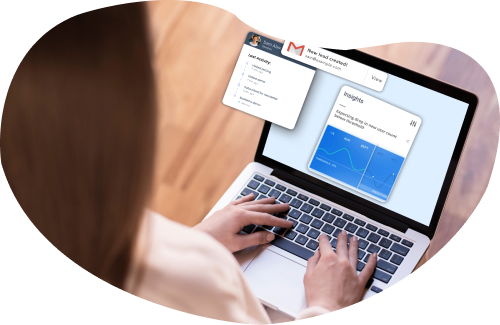
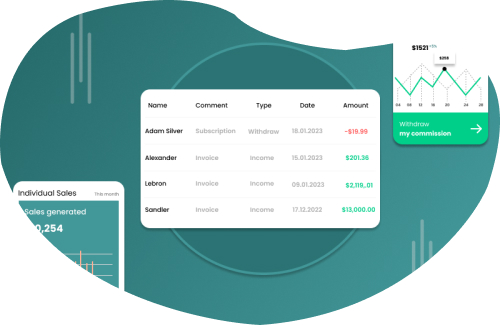
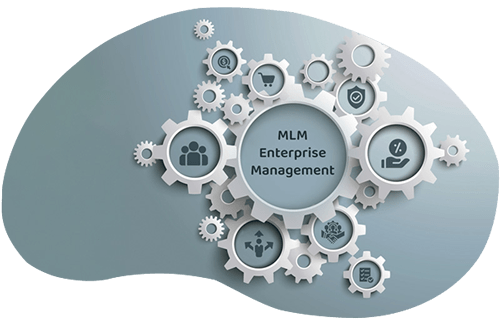

Leave your comment
Fill up and remark your valuable comment.